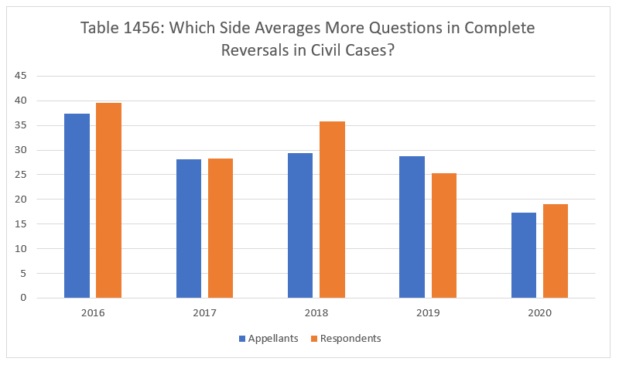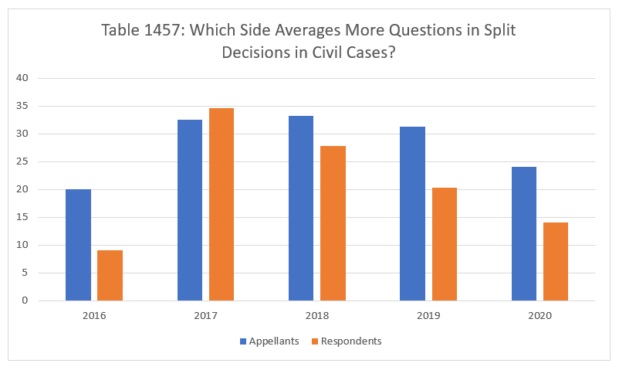Last week, we reviewed the academic literature on oral argument analytics and compared the data on oral arguments at the California Supreme Court. Last week, we aggregated the data on reversals – reversals plus partial reversals ("affirmed in part, reversed in part"). This week, we're checking if the oral argument data is any different for partial and complete reversals.
We report the data on outright reversals in Table 1456 below. We expect the losing party to get more questions, and sure enough, the losing appellees get more questions in four of five years between 2016 and 2020.

However, in partial reversals, appellees only received more questions in one of five years – 2017.

Join us back here tomorrow as we turn our attention to the criminal docket.
Image courtesy of Flickr by Bennilover (no changes).
The content of this article is intended to provide a general guide to the subject matter. Specialist advice should be sought about your specific circumstances.

